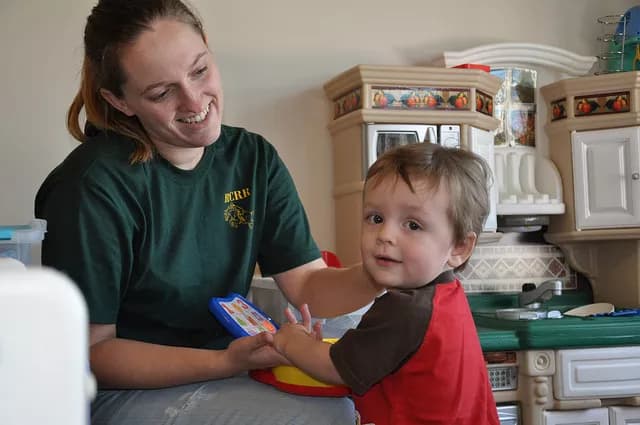
Breastfeeding Reduces Risk Of Endometriosis Diagnosis
Endometriosis is a chronic and incurable gynecologic disorder that affects approximately 10 percent of women in the United States. Its symptoms can be debilitating and include chronic pelvic pain, painful periods and pain during intercourse. A new study by investigators at Brigham and Women's Hospital finds that women who breastfed for longer periods of time had significantly lower risk of being diagnosed with endometriosis, offering new insights into a condition that, up until now, has had very few known, modifiable risk factors. The team's findings are published in The BMJ.
"We found that women who breastfed for a greater duration were less likely to be diagnosed with endometriosis," said corresponding author Leslie Farland, ScM, ScD, a research scientist at the Center for Infertility and Reproductive Surgery at BWH. "Given the chronic nature of endometriosis and that very few modifiable risk factors are currently known, breastfeeding may be an important modifiable behavior to reduce the risk of endometriosis among women after pregnancy."
The team used data from the Nurses' Health Study II (NHSII), a prospective cohort study that began in 1989. In the current analysis, researchers followed thousands of women for more than 20 years. During that time period, 3,296 women in the study were surgically diagnosed with endometriosis after their first pregnancy. The research team examined how long each woman breastfed, exclusively breastfed (breastfed without the introduction of solid food or formula), and how much time passed before their first postpartum period.
The team found that for every three additional months that mothers breastfed per pregnancy, women experienced an 8 percent drop in risk of endometriosis. This drop was even higher for mothers who exclusively breastfed: risk of endometriosis dropped 14 percent for every three additional months of exclusive breastfeeding per pregnancy. Researchers also looked at the effect of breastfeeding across reproductive lifetime -- that is, breastfeeding more than one child. Women who breastfed exclusively for 18 months or more across their reproductive lifetime had a nearly 30 percent lower risk of being diagnosed with endometriosis.
The team investigated whether the decreased risk was due to postpartum amenorrhea -- the temporary absence of menstrual periods that occurs when a woman is breastfeeding. They found that this accounted for some -- but not all -- of the effect, suggesting that breastfeeding may influence endometriosis risk through other mechanisms as well. Breastfeeding changes many of the hormones in a woman's body, including oxytocin, estrogen, gonadotropin-releasing hormone and others for which there is evidence of a role in endometriosis pathophysiology.
The authors note that although they find a robust association between breastfeeding and lower risk of endometriosis, they cannot disentangle whether women who breastfeed are less likely to develop the disease itself, or whether women who breastfeed are less likely to experience pain symptoms severe enough to indicate a surgical evaluation.
The study did not include women who had been diagnosed with endometriosis prior to their first pregnancy, but the researchers are interested in investigating whether breastfeeding could help ease the symptoms of endometriosis for women who already have been diagnosed with the disease.
"Our findings lend support to the body of public health and policy literature that advocates for the promotion of breastfeeding," said Farland. "Our work has important implications for advising women who are looking to lower their risk of endometriosis. We hope that future research will illuminate whether breastfeeding could help lessen the symptoms of endometriosis among women who have already been diagnosed."
Materials provided by Brigham and Women's Hospital. Note: Content may be edited for style and length.
Disclaimer: DoveMed is not responsible for the accuracy of the adapted version of news releases posted to DoveMed by contributing universities and institutions.
References:
Leslie V Farland, A Heather Eliassen, Rulla M Tamimi, Donna Spiegelman, Karin B Michels, Stacey A Missmer. (2017). History of breast feeding and risk of incident endometriosis: prospective cohort study. BMJ. DOI: 10.1136/bmj.j3778
Related Articles
Test Your Knowledge
Asked by users
Related Centers
Related Specialties
Related Physicians
Related Procedures
Related Resources
Join DoveHubs
and connect with fellow professionals

0 Comments
Please log in to post a comment.